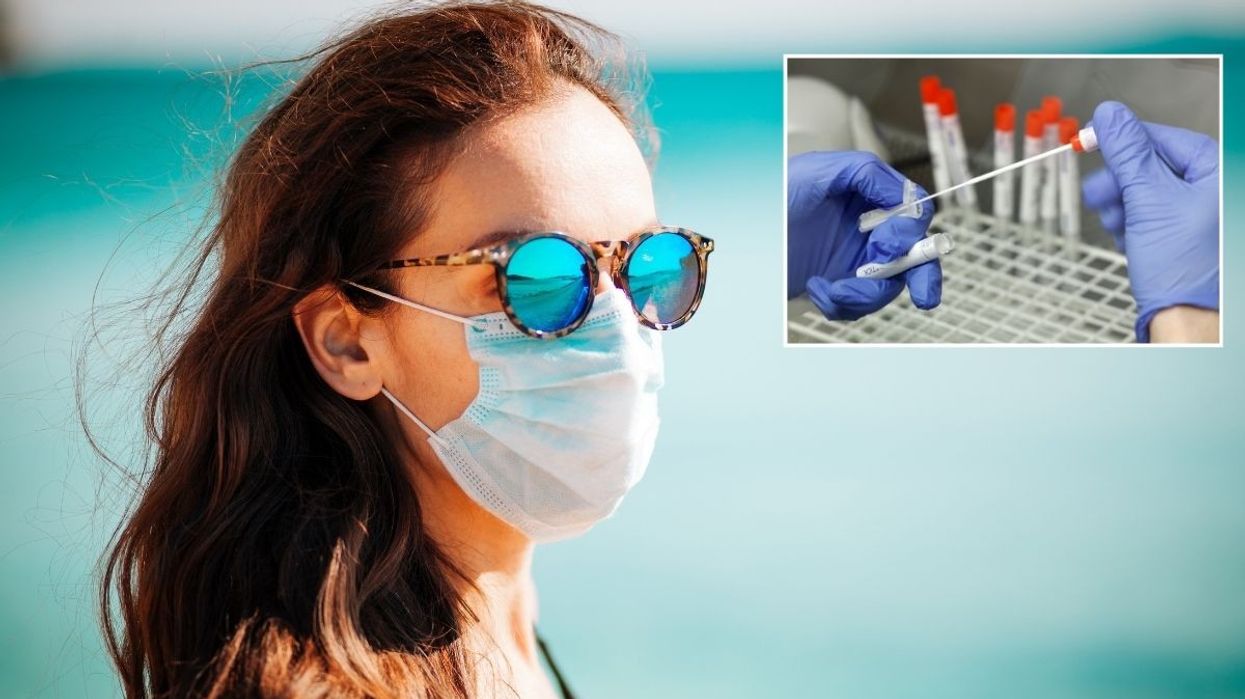Summer surge of Covid is officially here - but what do health experts say is the cause?

Common symptoms of the new Covid variants are a stubborn cough and sore throat
|Getty

New Covid variants N FLiRT and LB.1. have been spreading across the UK
Don't Miss
Most Read
On Wednesday it was announced that President Biden had tested positive for Covid marking a broader trend of a rise in cases across the world.
The summer months have seen an increase of people in the UK testing positive for COVID as new strains named N FLiRT and LB.1. spread across the country.
Data from the Office for National Statistics show that in the week ending June 21, there were 153 deaths involving Covid in England and Wales.
Public Health Scotland also reported 1153 new Covid cases in the week ending June 30, which is a rise from 1119 cases the week before.
Hospitals in Scotland also saw a rise of inpatients with Covid from a seven day average of 487 on June 23 to 564 on June 30.

Public Health Scotland also reported 1153 new Covid cases in the week ending June 30
|Getty
Why is Covid spreading now?
A common question is why Covid is spreading in the summer when other illnesses like the cold and the flu are generally constrained to the wintertime.
Christina Pagel, professor of operational research in healthcare at University College London, said: "Covid is in no way a winter respiratory bug: its behaviour is nothing like flu or RSV [respiratory syncytial virus], the other main respiratory viruses that can cause severe illness and do so every winter.
"While flu and RSV are pretty much confined to November to March, Covid waves can and do happen at any time of year. We are still in three to four waves a year, each causing some disruption to people’s lives, employment, and the NHS.”
Other experts have pointed to an increase in summer travel and big events such as festivals and overcrowding from the Euros.
Mark Woolhouse, professor of infectious disease epidemiology at the University of Edinburgh said: "There is a widespread impression of a growing 2024 summer wave, much as we saw in 2021 when (coincidently perhaps) there was also a Euro football tournament, and evidence that this contributed significantly to the spread of infection.”
Dr Mariyam Malik, an NHS and private GP at Pall Mall Medical also said: "Increased travel and big events such as festivals often result in crowded settings where the virus can spread more easily, and there are no longer any legal restrictions like wearing masks or social distancing."
Malik also suggested that the reason people who are vaccinated are still getting ill could be because the FLiRT and LB.1 variant are able to evade immunity.
"The FLiRT variant has specific changes in its spike protein that might make it spread more easily and dodge immunity from past infections or vaccines.
"Similarly, the LB.1 variant has mutations that help it spread and possibly weaken the protection we get from previous immunity, making these variants different from earlier versions of the virus," Dr. Malik said.
What are the symptoms?
The most prominent symptoms of the new FLiRT and LB.1 Covid variant is a stubborn cough or a sore throat.
According to Dr. Malik, other symptoms are similar to previous strains including a "fever, cough, fatigue, loss of taste or smell, sore throat, muscle or body aches, shortness of breath, headache, and a runny nose."
The variant will also last for the same period of time as previous ones.
Doctors advise you to self-isolate and take over-the-counter treatments if you are experiencing symptoms.
Dr. Malik said: “It is best to try to self-isolate, rest and stay hydrated.
"Use over-the-counter medications for symptom relief, such as paracetamol and ibuprofen, and monitor your symptoms closely, seeking medical help if they worsen.”

Joe Biden was tested positive for Covid on Wednesday evening
|Getty
LATEST FROM MEMBERSHIP:
Where does this leave us?
There are no signs that these latest strains result in a more serious illness than their predecessors.
Jonathan Li, an infectious disease doctor and an associate professor of medicine at Harvard Medical School and Brigham and Women’s Hospital, said that Covid is something we'll just need to learn to live with.
“The fact is it’s one of those viruses that’s going to be with us, I think, year-round. And I think we’re going to have to learn to live with it.
“We’re going to have to learn to manage it and to try to protect those amongst us who are the most vulnerable," Li said.
Dr. Malik also advised to keep up to date with vaccinations and boosters and to regularly wash your hands to help limit the spread of the virus.
“Regular testing and isolating if you develop any symptoms or test positive can also help control the spread of the virus," Malik added.
If you have severe symptoms like difficulty breathing or persistent high fever, you should see your GP.
She added: "Individuals with underlying health conditions should contact their GP if they test positive or develop symptoms, as they may be at higher risk for severe illness."










